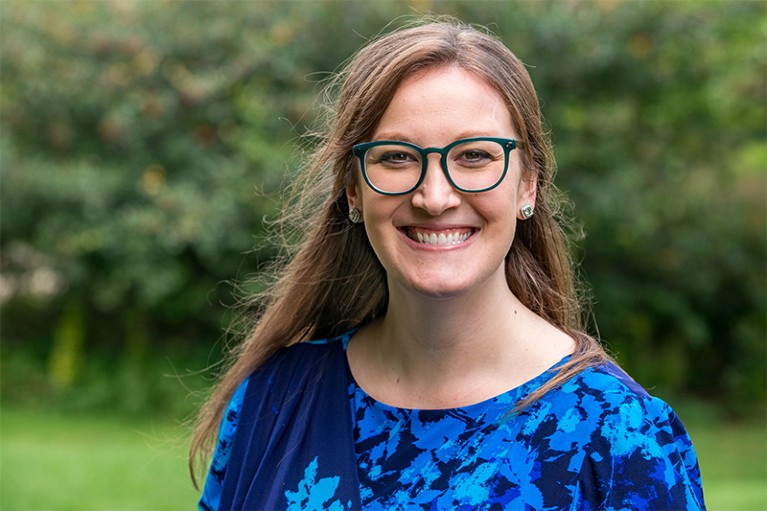
Credit: Joe Sterbenc, Univ. Chicago
In 2015, Briana Konnick left a postdoctoral position at the Scripps Research Institute’s Florida campus in Jupiter, where she had earned a PhD in biology the previous year, to become a career adviser. She moved to a similar role at the University of Chicago in Illinois in 2016, and is now associate director of graduate career development there.
How did you get your current role?
The Jupiter campus at Scripps had few career support services for graduate students and postdocs during my PhD, unlike the main campus in California. I helped to form a graduate-student committee, started a mentorship programme and led a local chapter of the Network for Women in Science. Then, I helped to lead the postdoc association, arranging for employers to visit us on campus.
I had the same supervisor for my PhD and postdoc. He was transparent about the realities of the academic career track, and what it was like to deal with budgets and grants. Many faculty members don’t typically share this aspect of their positions. I realized that I enjoyed helping to develop programmes for graduate students and postdocs more than I did my laboratory work. In 2015, I was appointed to a full-time post with the Career and Postdoctoral Services Office at Scripps.
A year later, I moved to the University of Chicago, as assistant director of graduate career development. We moved to the greater Chicago area because my husband, who is a research chemist, had an opportunity to found a start-up company based on some of his previous work. My position at Scripps was wonderful, but this opportunity for my husband was too good to pass up. The ‘two-body problem’ (where one member of a couple gets a job in a new location, requiring the other to relocate, too, and find a job) is a common one.
In October last year, I was promoted to my current role. There are more than 20 people in our office, including 6 career advisers. At Scripps’s Florida campus, I was basically an office of one, so moving to a larger office has been fantastic. I specialize in science, technology, engineering and mathematics because of my background, and I have colleagues who serve the social sciences, another who handles the humanities, and so on.
How do you organize your time?
Our busiest time is autumn. Graduate students are starting new programmes, late-stage PhD students and postdocs are applying for faculty positions and employers are hosting recruitment sessions on campus.
The office has a clear mission of equally supporting any career path a graduate student or postdoc is interested in — whether academic, industry, non-profit or government. The career advisers all offer 12 full hours of advising appointments each week. At busy times of the year, I’ve offered a couple more hours, but that has to be the limit. Otherwise, it’s quite easy to burn out and we would not be as productive. There is preparation and follow-up to do with every appointment. Being busy is a great problem to have. We’re always hoping that people will come to us more.
What advice would you offer to someone considering a career-development role?
I recommend gaining experience with a range of stakeholders in academic institutions. The more exposure you have to the needs and perspectives of other administrators, academic leaders (say, in the provost’s office), faculty members, deans and so on, the better prepared you will be. You need to be able to navigate a variety of situations with diplomacy, effective communication and measured consideration.
Excellent organization and management skills are essential, because a decent amount of the work in this role is purely administrative. As my own story shows, you can take advantage of unpaid opportunities, such as volunteering and committee work.
In my office, I have a quote on the wall that I carry with me to every position I take: “Do what you love, love what you do.” Sounds simple, but the message to me is profound. Seeking better alignment between what motivates you internally and the realities of your work will not only lead to great personal satisfaction, but will significantly improve the quality of your work.

 The professional advisers who can help you to move from academia to industry
The professional advisers who can help you to move from academia to industry
 Can we engineer ourselves to be lucky scientists?
Can we engineer ourselves to be lucky scientists?
 One couple, two cities: How to handle an international career move
One couple, two cities: How to handle an international career move
 Turning point: Sarah Blackford
Turning point: Sarah Blackford



